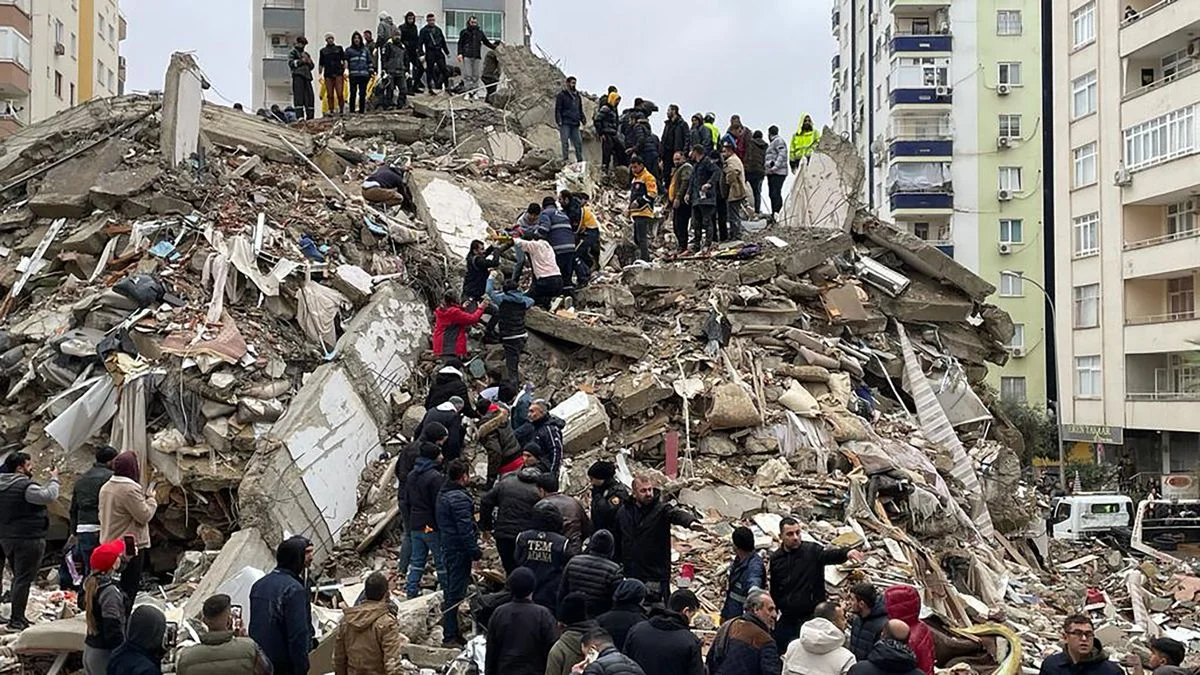A magnitude-7.8 earthquake hit southeastern Turkey and parts of Syria. More than 7,000 people died after a devastating earthquake struck Turkey and Syria on Monday.
Earthquakes are very hard to predict, but it’s important to be prepared and know how to stay safe during and after quakes.
Here are some ways to stay safe and prepared during and after quakes:
- During an earthquake, the most important thing to do is to protect yourself from falling objects and other hazards. The best way to do this is to drop to the ground, take cover under a sturdy table or desk, and hold on until the shaking stops.
- It is important to stay away from windows and other objects that may fall, such as bookcases or lighting fixtures, as they can cause serious injury during an earthquake.
- If you’re in bed, stay there and cover your head with a pillow to protect yourself from falling objects. Hold on to the bed to prevent yourself from being thrown around during the shaking.
- If you’re outside, find an open area away from buildings, trees, and power lines. This will reduce the risk of being hit by falling objects or electrical hazards.
- If you’re in a car, stop the vehicle and stay inside until the shaking stops. This will help to protect you from falling debris and other hazards on the road.
- If you’re in a high-rise building, evacuate as quickly as possible, taking the stairs instead of the elevator. Elevators can become trapped during an earthquake, making it difficult to escape the building.
- After an earthquake, it is important to be prepared for aftershocks, which can occur after the initial earthquake. Stay alert and take cover if necessary.
- If you’re trapped under debris, try to remain calm and tap on a pipe or wall so rescuers can locate you. It is also important to conserve your energy and avoid moving too much to prevent further injury.
- If you’re in a coastal area, be aware of the risk of a tsunami and move to higher ground as quickly as possible. This will reduce the risk of being caught in a dangerous wave.
- After the earthquake, it is important to assess your immediate surroundings for safety and check for any injuries. Provide first aid as necessary, and be prepared for the possibility of aftershocks or other hazards. It is also important to listen to official announcements for updates on the situation and for instructions on what to do next.




